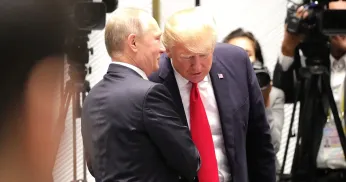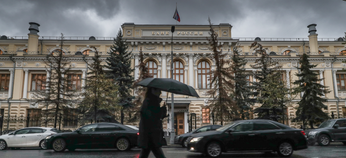
Les "agents étrangers" russes perdent leurs revenus fonciers et patrimoniaux
Les autorités russes continuent de sévir contre les personnalités de l'opposition et les journalistes qu'elles ont qualifiés d'"agents étrangers". Dans la dernière série de mesures, il leur sera interdit de tirer des revenus de leurs actifs russes, et il est proposé d'interdire la perception d'argent provenant de la vente ou de la location de biens immobiliers, de dividendes ou d'intérêts sur l'épargne. En bref, les autorités continuent de trouver de nouvelles façons de laisser la poignée d'agents étrangers encore présents en Russie avec de moins en moins de sources de revenus.
- Un projet de loi actuellement en cours d'examen à la Douma d'État russe obligerait les agents étrangers à recevoir des paiements pour certaines activités sur des comptes spéciaux - de la même manière que les entreprises étrangères de pays hostiles sont obligées de recevoir des dividendes. Les fonds de ces comptes ne seraient accessibles que lorsque le statut d'"agent étranger" serait révoqué. Comme cela est pratiquement impossible, les fonds sont en fait gelés - et inutilisables - pour une durée indéterminée, sauf pour le paiement d'amendes gouvernementales.
- Ces mesures ont été publiées sous forme d'amendements à la deuxième lecture d'un projet de loi visant d'autres sources de revenus pour les agents étrangers. Comme c'est souvent le cas en Russie, le champ d'application du projet de loi a changé de manière significative entre la première et la deuxième lecture. Au départ, la législation ne visait qu'à interrompre le paiement des redevances aux musiciens et aux auteurs qui avaient quitté la Russie. Mais avant même la première lecture, l'orateur Vyacheslav Volodin a décidé d' élargir le champ d'application du projet de loi, probablement après avoir obtenu l'approbation de ses demandes initiales visant à restreindre plus largement les revenus des agents étrangers. "Ceux qui nuisent à la Russie en insultant ses citoyens et les participants à l'opération militaire spéciale ne devraient pas s'enrichir aux dépens de notre pays", a-t-il écrit sur sa chaîne Telegram.
- Le paquet d'amendements inclut maintenant des restrictions sur d'autres formes de revenus qui n'ont rien à voir avec le travail créatif : tels que les revenus provenant de la vente ou de la location de biens immobiliers, de la vente de véhicules, de l'épargne et des revenus d'investissement.
- La restriction sur les revenus de la propriété est particulièrement dure à supporter. Les appartements obtenus lors de la privatisation après l'ère soviétique sont généralement les biens les plus importants que possèdent de nombreuses familles russes. Face à la flambée des prix de l'immobilier locatif à Moscou, un émigrant pourrait être en mesure de subvenir entièrement à ses besoins dans un pays bon marché comme l'Arménie ou la Géorgie en louant un appartement dans la capitale russe. L'interdiction des retours sur investissement est également intéressante. Le registre des agents étrangers a déjà été manipulé, ce qui signifie qu'il peut être utilisé comme une arme supplémentaire pour régler des comptes dans le monde des affaires.
- La Russie répertorie actuellement 493 personnes en tant qu'agents étrangers. Il s'agit notamment de journalistes, d'hommes politiques, d'activistes, de personnalités du monde de la culture et de scientifiques de premier plan. Mais il existe un autre registre non publié de personnes affiliées à des agents étrangers (par exemple, les employés d'une organisation qui a été étiquetée comme "agent étranger") qui comprend environ 1 000 autres personnes. Il serait tout à fait logique que les autorités étendent ces restrictions à ce groupe plus important. La Douma souhaite en fait aller beaucoup plus loin et faire en sorte que tous les Russes qui critiquent le Kremlin depuis l'étranger voient leurs revenus acheminés vers ces comptes spéciaux, inutilisables. Volodine a directement déclaré que pour ceux qui "ne sont pas classés comme agents étrangers mais qui parlent négativement de la Russie après leur départ", il y aura également des restrictions sur les biens et les actifs.
Pourquoi le monde doit-il s'en préoccuper ?
Le régime de Vladimir Poutine reste fidèle à lui-même. Il aime utiliser des méthodes économiques pour étrangler l'opposition, ce qu'il a déjà réussi à faire par le passé. Désormais, il sera encore plus difficile pour les personnes désignées comme agents étrangers de survivre en exil.










